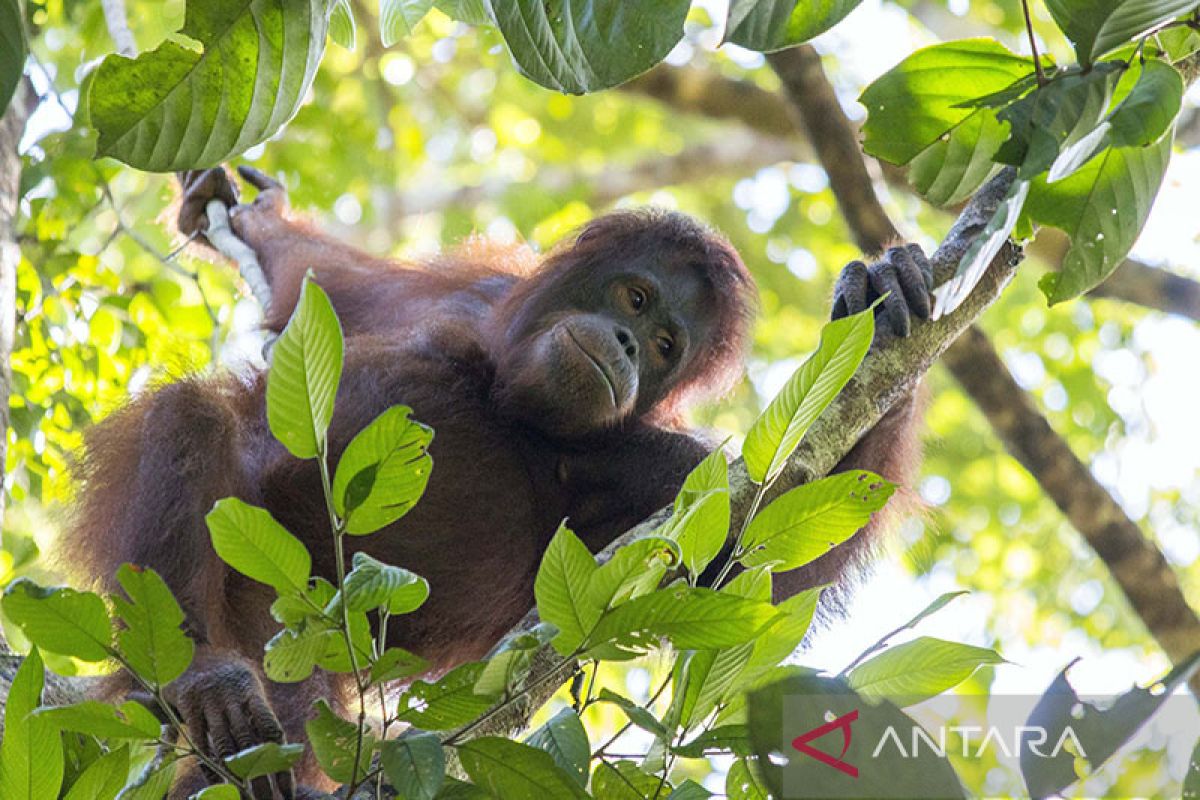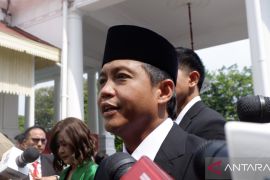
Balancing new capital development with orangutan habitat preservation

it is not just orangutans that must be protected in the IKN area but also other wild animals,
Jakarta (ANTARA) - The Joko Widodo (Jokowi) administration is accelerating the development of the new capital named Nusantara— an old Javanese word that reflects Indonesia’s archipelagic status as a nation of 17 thousand islands.
The government has picked a part of North Penajam Paser District and a part of Kutai Kartanegara District in East Kalimantan Province as the location for the new capital, which is often referred to as IKN.
"The most ideal (location for) the new capital city is in part of North Penajam Paser District and part of Kutai Kartanegara District, East Kalimantan Province," President Widodo said at the Presidential Palace in Jakarta on August 26, 2019.
East Kalimantan is located on Kalimantan Island or Borneo, which is known as the “lung of the world” on account of its vast primary forests that are vital for absorbing CO2 emissions and thereby, mitigating the impact of climate change.
The new Indonesian capital will span 256,142 hectares of land, or four times the present capital Jakarta's size, and 68,189 hectares of marine area.
The government, however, has assured that the location chosen for the IKN project contains no primary forests, but industrial forest areas.
It has also assured that the development of IKN would not damage local forests, as natural conditions would be taken into account during construction.
"We must not perceive that our efforts to relocate the capital will damage the forests," Widodo said on February 22, 2022, while speaking about the US$32-billion IKN megaproject.
The government is committed to ensuring that 70 percent of the new capital area is reserved as a green area to ensure the capital remains green, according to the President.
"The new capital will have many green areas and forests. All aspects in the capital, including the transportation system, water and electricity system, infrastructures, communications, and public services, will be managed by modern technologies," he informed.
Apart from preserving the natural waterfront by maintaining the forest ecosystem, the authority is committed to rehabilitating several ecosystems that have been damaged, he stated.
"Of the 256 thousand hectares (of land procured for) the new capital area, construction work will be carried out in only 50 thousand hectares of land, while the rest of the 200 thousand hectares would be preserved as it is. We will also rehabilitate damaged ecosystems by developing tree nurseries that would produce at least 20 million tree seedlings annually," Widodo informed.
The President assured that buildings in the new capital city will showcase the greatness of the nation, reflect national identity, and demonstrate social, economic, and environmental sustainability.
"This is a leap for the Indonesian people to transform the nation to become an advanced Indonesia," he said.
President Widodo signed Law No. 3 of 2022 on the State Capital on February 15, 2022, and installed Bambang Susantono as head of the Nusantara Capital City Authority and Dhony Rahajoe as the deputy head in Jakarta on March 10, 2022.
Susantono, who graduated from the Civil Engineering Faculty of Bandung Institute of Technology (ITB) in 1987, had served as ADB's vice president for sustainable management and development since July 2015. He also had a stint as deputy minister of transportation from 2009 to 2014.
Prior to his appointment, Rahajoe was the managing director of a private property company, Sinar Mas Land.
Orangutans
Kalimantan and Sumatra Island are the only two places in the world where orangutans can be found in the wild.
Kutai Kartanegara has been home to Semboja Lestari Orangutan Rehabilitation and Reintroduction Center of Borneo Orangutan Survival Foundation (BOSF) since 1991.
Considering the proximity of the orangutans’ habitat to the new capital, the Presidential Staff Office (KSP) has assured that the government will protect Kalimantan orangutans (Pongo pygmaeus morio) during the IKN development process.
Wandy Tuturoong, the main expert at KSP, said that the government has conducted several studies on the capital's development plan, including a Strategic Environmental Study (KLHS) in the capital area.
The government has also readied several planning documents, including the Master Plan for the Capital City Nusantara, which envisages the capital as a “forest city.”
The study recommended five roadmaps for environmental recovery and improvement. Two of the roadmaps pertain to improving the quality of wildlife, including orangutans, and restoring tropical rainforest ecosystems, he said.
"Hence, it is not just orangutans that must be protected in the IKN area but also other wild animals, such as kuwuk cats, migratory birds, estuarine crocodiles, clouded leopards, langur monkey, and turtles," he affirmed.
For the protection and preservation of the animals, the government will develop animal corridors, with canopies and animal signs, in accordance with the Minister of Environment and Forestry’s Regulation No. 23 of 2019, he added.
The Environmental Affairs and Forestry Ministry’s director general for ecosystems and natural resources conservation (KSDAE), Wiratno, confirmed that the IKN authorities will develop a corridor for animals around the capital city.
Data from 2016 pegged the number of orangutans in Kutai Kartanegara at 14,540, with their population spread across 17 landscapes, including Beratus, Sungai Wain, Kutai – BontangNational Park, Belayan – Senyiur, Wehea – Lesan, Sangkulirang, Tabin, North Kinabatangan, Ulu Kalumpang, Crocker, Lingkabau, Bonggaya, Ulu Tungud, and Sepilok.
“Orangutans closest to IKN are only found in Sungai Wain Landscape. Those orangutans found in Sungai Wain are orangutans that have been rehabilitated," Wiratno informed.
Environmental NGO activists have expressed concerns that the IKN project, which is expected to relocate up to 1.5 million people to the new capital, could prove disastrous for the environment.
Earlier, Anton Nurcahyo, deputy CEO of BOSF, had expressed the concern that the relocation of the capital city to Kutai Kartanegara would cause major changes to the orangutan habitat in surrounding areas, although there is no orangutan habitat inside the IKN location.
"But the orangutan rehabilitation center is located here, in a forest area covering 1,850 hectares, and the current condition must be preserved,” he said.
He emphasized that it is crucial for IKN authorities to have a mitigation plan, adjusted to specific environmental requirements, for preserving East Kalimantan’s unique ecosystem.
Pewarta : Fardah
Editor:
Achmad Zaenal M
COPYRIGHT © ANTARA 2025









